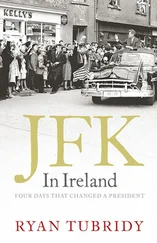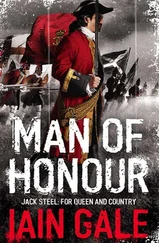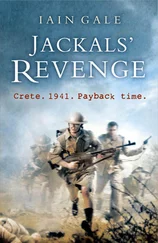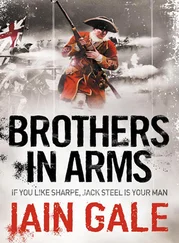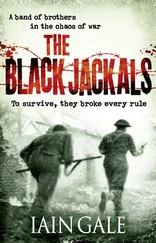IAIN GALE
A battle lost, a battle won, June 1815
To the memory of George Gale and Giles Gordon
Prologue A hundred days PROLOGUE A hundred days They had thought him broken. Believed that they had vanquished forever the tyrant who had laid Europe waste for two decades. But he had proved them wrong. Had, in an unguarded moment of that first spring of peace, slipped the bonds of his captivity and returned to France. Had raised again the eagles and the empire and readied himself for battle. So now the redcoats waited and watched and guessed how he would come to them. The generals, the captains and the men. Men who had thought their soldiering days were past. Who, depending on their rank, had seen their futures now lived out in riding to hounds or gambling in St James’s or spending hard-earned booty in the taverns and whorehouses of Liverpool and London. Men from the shires and men from the hard north. Highlanders and farmers’ boys and thieves and petty felons. Soldiers all. Men who had fought this irksome man through eight long years in Spain. And with them now the new blood. Callow privates and pale young subalterns, drawn by the promise of an unexpected last chance to find glory and fortune in Boney’s wars. Others came to swell their ranks: Germans, Dutch and Belgians, and on their flank a huge army of Prussians, all of them equally determined to finish now a job they had thought long done. Together they waited and they watched. And the summer grew strange and unsettling, the days drifting between hot sunshine and heavy rain. In the fields the rye and wheat, still green in ear, stood shoulder high. And the redcoats and all their allies grew restless and longed for him to come. |
Day One Thursday 15 June 1815 DAY ONE |
Day Two Friday 16 June 1815 DAY TWO |
Day Three Saturday 17 June 1815 Конец ознакомительного фрагмента. Текст предоставлен ООО «ЛитРес». Прочитайте эту книгу целиком, купив полную легальную версию на ЛитРес. Безопасно оплатить книгу можно банковской картой Visa, MasterCard, Maestro, со счета мобильного телефона, с платежного терминала, в салоне МТС или Связной, через PayPal, WebMoney, Яндекс.Деньги, QIWI Кошелек, бонусными картами или другим удобным Вам способом. |
Day Four Sunday 18 June 1815 Конец ознакомительного фрагмента. Текст предоставлен ООО «ЛитРес». Прочитайте эту книгу целиком, купив полную легальную версию на ЛитРес. Безопасно оплатить книгу можно банковской картой Visa, MasterCard, Maestro, со счета мобильного телефона, с платежного терминала, в салоне МТС или Связной, через PayPal, WebMoney, Яндекс.Деньги, QIWI Кошелек, бонусными картами или другим удобным Вам способом. |
Postscript Конец ознакомительного фрагмента. Текст предоставлен ООО «ЛитРес». Прочитайте эту книгу целиком, купив полную легальную версию на ЛитРес. Безопасно оплатить книгу можно банковской картой Visa, MasterCard, Maestro, со счета мобильного телефона, с платежного терминала, в салоне МТС или Связной, через PayPal, WebMoney, Яндекс.Деньги, QIWI Кошелек, бонусными картами или другим удобным Вам способом. |
Biographical Notes Конец ознакомительного фрагмента. Текст предоставлен ООО «ЛитРес». Прочитайте эту книгу целиком, купив полную легальную версию на ЛитРес. Безопасно оплатить книгу можно банковской картой Visa, MasterCard, Maestro, со счета мобильного телефона, с платежного терминала, в салоне МТС или Связной, через PayPal, WebMoney, Яндекс.Деньги, QIWI Кошелек, бонусными картами или другим удобным Вам способом. |
Author’s Note Конец ознакомительного фрагмента. Текст предоставлен ООО «ЛитРес». Прочитайте эту книгу целиком, купив полную легальную версию на ЛитРес. Безопасно оплатить книгу можно банковской картой Visa, MasterCard, Maestro, со счета мобильного телефона, с платежного терминала, в салоне МТС или Связной, через PayPal, WebMoney, Яндекс.Деньги, QIWI Кошелек, бонусными картами или другим удобным Вам способом. |
They had thought him broken. Believed that they had vanquished forever the tyrant who had laid Europe waste for two decades. But he had proved them wrong. Had, in an unguarded moment of that first spring of peace, slipped the bonds of his captivity and returned to France. Had raised again the eagles and the empire and readied himself for battle.
So now the redcoats waited and watched and guessed how he would come to them. The generals, the captains and the men. Men who had thought their soldiering days were past. Who, depending on their rank, had seen their futures now lived out in riding to hounds or gambling in St James’s or spending hard-earned booty in the taverns and whorehouses of Liverpool and London. Men from the shires and men from the hard north. Highlanders and farmers’ boys and thieves and petty felons. Soldiers all.
Men who had fought this irksome man through eight long years in Spain. And with them now the new blood. Callow privates and pale young subalterns, drawn by the promise of an unexpected last chance to find glory and fortune in Boney’s wars. Others came to swell their ranks: Germans, Dutch and Belgians, and on their flank a huge army of Prussians, all of them equally determined to finish now a job they had thought long done.
Together they waited and they watched. And the summer grew strange and unsettling, the days drifting between hot sunshine and heavy rain. In the fields the rye and wheat, still green in ear, stood shoulder high. And the redcoats and all their allies grew restless and longed for him to come.
DAY ONE
ONE
Charleroi, 3.30 a.m. Ziethen
The man was terrified. Ziethen was not surprised. The only penalty for desertion was death, and he had gambled his all on making a desperate rush through both his own lines and the enemy pickets. By some miracle he had not been shot. To risk death; to betray your country. It was a strange courage. A courage born of cowardice. He did not look like a coward, this Frenchman. And he did not look like a hero. Or for that matter much like a soldier. On his head was the familiar black shako, with its brass plate bearing the raised number 13. The 13th Regiment of Line Infantry. Ziethen tried to place it. Which corps? Which brigade? Who was facing him down there across the river? No matter. They would get that from him later. He remembered the 13th, though. As heroes – of Austerlitz, Eylau, Wagram, Borodino. He had even crossed swords with them himself – at Auerstadt. But this man was not the Frenchman of 1806. The French who had marched into Berlin a month later, to Prussia’s everlasting shame. This, thought Ziethen, was a different sort of Frenchman – shambolic.
Читать дальше



